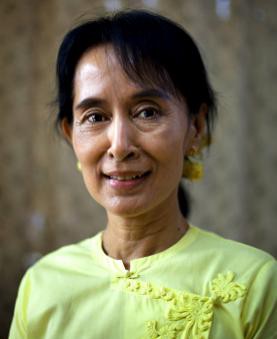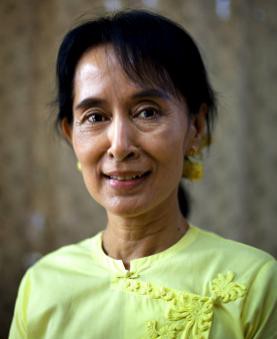Of 100 Nobel Peace Prize Winners, 15 Have Been Women, None Have Been American Women of Color, None…
Of 100 Nobel Peace Prize Winners, 15 Have Been Women, None Have Been American Women of Color, None Have Been LGBTQ


Via Racialicious, here’s a great piece by Kelly Macías on the long history of “peace [being] regarded as men’s work.” Nobel Peace Prize winners are a rarefied bunch, but if the E.U. can get it, surely some women, women of color, and LGBTQ activists can get it, or at least be nominated, too.
If you look at the contributions of Black American women alone (some of whom are also part of the LGBTQ community), we have a rich history of peace activism dating all the way back to slavery and the abolitionist movement.[…] And we are not alone. Women of color in the U.S. have been incredibly active in championing and building peace. Consider Yuri Kochiyama, who was actually nominated for the Peace Prize in 2005; Dolores Huerta, co-founder of the National Farmworkers Association (which later became United Farm Workers), who organized for migrant workers and the poor; Ada Deer, a member of the Menominee Nation and as a Native American activist who was the first woman to head the Bureau of Indian Affairs. […] Likewise there is a dilemma in failing to acknowledge LGBTQ peacemakers. In his 2011 article, “Where are the Gay Nobel Prize Winners?” Laurence Watts points out that none of the winners of any of the Nobel prizes has been openly gay. Are there likely non-straight winners? Absolutely. But we don’t know anything about them. And particularly when it comes to the peace prize, it seems negligent not to acknowledge those working for equal rights for members of the LGBTQ community.
The piece, originally published at the Feminist Wire, goes on to discuss how “radical” peacemaking is often excluded from the nomination process, and how truth-to-power movements seem much more palatable when they’re viewed from abroad. Macías won’t have it:
The stereotypical notion of the American savior who rescues the rest of the planet is antiquated and colonial; and the notion that peace and humanitarian work is only necessary and valid when it’s done abroad negates the gross injustices and human rights violations that take place on our own soil…
When the accolades of peace work continue to go to those persons that fit our notions of conventionality and acceptability, far too many activists find themselves excluded, shut out of mainstream movements, and then forced to organize in separate spaces.[…] Those who nominate the potential winners of the Nobel Peace Prize can do a far better job. They must do better. It is irresponsible to set the precedent that some peace movements are more respectable and important than others.